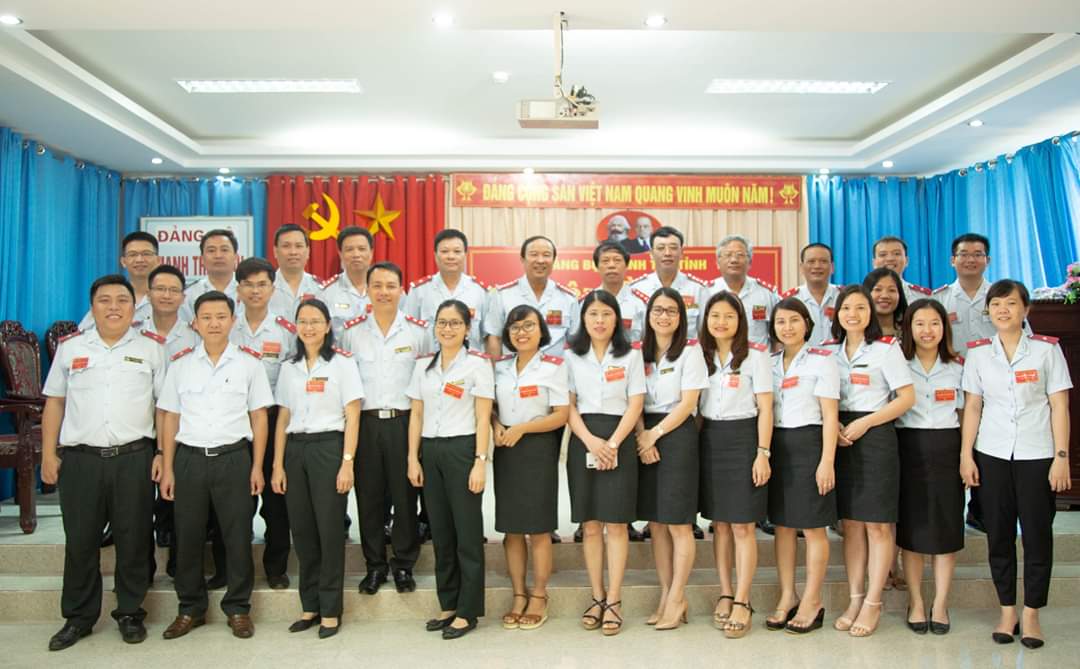Tasks and powers of the Provincial Inspectorate in anti-corruption and misconduct prevention activities (Latest)
What are the position and functions of the Provincial Inspectorate in Vietnam? What are the tasks and powers of the Provincial Inspectorate in anti-corruption and misconduct prevention activities? - Hong Hanh (Ninh Thuan)

Tasks and powers of the Provincial Inspectorate in anti-corruption and misconduct prevention activities (Latest) (Internet image)
Regarding this issue, LawNet would like to answer as follows:
On December 22, 2023, the Government Inspectorate issued Circular 02/2023/TT-TTCP guiding the functions, tasks, powers, and organization of the Provincial Inspectorate, Central-affiliated city and district inspectorates, and town and city inspectorates under the provinces and Central-affiliated cities.
Position and functions of the Provincial Inspectorate in Vietnam
The Provincial Inspectorate, Central-affiliated city inspectorates (referred to as the Provincial Inspectorate) is a specialized agency under the People's Committee of the province, Central-affiliated city People's Committee (referred to as the Provincial People's Committee), assisting the Provincial People's Committee in managing the state's inspection work, receiving citizens, settling complaints, denunciations, and preventing corruption and negative activities; carrying out inspection tasks within the state management scope of the Provincial People's Committee; performing the task of receiving citizens, settling complaints, denunciations, and preventing corruption and negative activities as prescribed by law.
The Provincial Inspectorate has a legal personality, seal, and separate account; it is under the direction and administration of the Chairman of the Provincial People's Committee and under the guidance of the Government Inspectorate in terms of inspection work and professional guidance.
(Article 1 of Circular 02/2023/TT-TTCP)
Tasks and powers of the Provincial Inspectorate in anti-corruption and misconduct prevention activities in Vietnam
In terms of anti-corruption and misconduct prevention activities, the Provincial Inspectorate will have the following tasks and powers:
- Inspecting the implementation of legal provisions on anti-corruption and misconduct prevention activities by district-level People's Committees and agencies, units under the Provincial People's Committee;
- Coordinating with the State Audit Office, Investigative Agency, People's Procuracy, and People's Court in the prevention, detection, prevention, and handling of corruption and negative activities;
- Inspecting cases of corruption involving officials working in agencies, organizations, units, state-owned enterprises under the jurisdiction of the local authorities, except cases under the jurisdiction of the Government Inspectorate;
- Controlling the assets and income of individuals obliged to declare their work at agencies, organizations, units, and state-owned enterprises under the jurisdiction of the local authorities according to regulations;
- Inspecting the implementation of anti-corruption laws for public companies, credit institutions, and social organizations according to anti-corruption laws;
- Inspecting and supervising internal affairs to prevent corruption and negative activities in the activities of the Provincial Inspectorate.
In addition to the above-mentioned content, the Provincial Inspectorate also has other related tasks and powers, as follows:
- In the process of performing inspection tasks, receiving citizens, settling complaints and denunciations, and preventing corruption and negative activities, the Provincial Inspectorate exercises its powers according to the provisions of the law; relevant agencies and units are required to assign civil servants and officials to participate in inspection teams, settle complaints and denunciations.
- Implementing international cooperation in the field of inspection, receiving citizens, settling complaints, denunciations, preventing corruption, and negative activities according to the provisions of the law and the assignment or authorization of the Provincial People's Committee and the Government Inspectorate.
- Organizing summarization, evaluation, and experience sharing of inspection activities; receiving citizens; settling complaints, denunciations, preventing corruption, and negative activities; carrying out information, synthesis, and reporting of inspection results; settlement of complaints, denunciations, prevention of corruption, and negative activities as prescribed by the Provincial People's Committee and the Government Inspectorate.
(For more details, refer to Article 2 of Circular 02/2023/TT-TTCP)
Regulations on the Organization of the Provincial Inspectorate in Vietnam (Latest)
(1) The Provincial Inspectorate consists of the Chief Inspector, Deputy Chief Inspector, Inspectors, and other officials.
- The Chief Inspector of the province is the head of the Provincial Inspectorate, responsible to the People's Committee, the Chairman of the provincial People's Committee, and the law for the implementation of the functions, tasks, and powers of the Provincial Inspectorate, the Chief Inspector of the province, and the implementation of tasks and powers according to the working regulations and assignments of the Provincial People's Committee.
The Chief Inspector of the province is appointed, dismissed, relieved from duty, transferred, rotated, and assigned after consulting the opinions of the Government Inspector General by the Chairman of the provincial People's Committee;
b) The Deputy Chief Inspector of the province assists the Chief Inspector of the province in performing tasks assigned by the Chief Inspector of the province, responsible to the Chief Inspector of the province and the law for the assigned tasks.
In the absence of the Chief Inspector of the province, a Deputy Chief Inspector of the province is entrusted by the Chief Inspector of the province to oversee the activities of the Provincial Inspectorate.
The appointment, dismissal, relief from duty, transfer, rotation, and assignment of the Deputy Chief Inspector of the province are decided by the Chairman of the provincial People's Committee in accordance with the provisions of the law and the proposal of the Chief Inspector of the province.
(2) Organization of the Provincial Inspectorate:
The Provincial Inspectorate has an office and specialized departments to ensure the implementation of functions and tasks related to inspection, citizen reception, complaint settlement, denunciation, prevention and control of corruption, negative acts, inspection follow-up, assessment, and post-inspection handling.
The establishment of specialized departments under the Provincial Inspectorate must comply with the provisions on the organization and staffing of local authorities, laws on inspection, and other relevant legal regulations.
The Chief Inspector of the province presides over and coordinates with the Director of the Department of Internal Affairs to submit decisions on the organizational structure of the Provincial Inspectorate to the provincial People's Committee.
(Article 3 of Circular 02/2023/TT-TTCP)
For more information, refer to Circular 02/2023/TT-TTCP, which will be effective from February 10, 2024.
- Key word:
- misconduct
- in Vietnam
- Guidelines for maintenance and renovation of villas in Ho Chi Minh City
- Guidelines for maintenance and renovation of villas in Ho Chi Minh City
- Resolution 190: Principles for addressing certain issues related to the organization and arrangement of state apparatus in Vietnam
- Guidance on identifying cases of inaccurate or non-operational electricity meters in Vietnam
- Official Telegram 16: Urgent requirement to allocate the entire state budget investment plan in 2025 in Vietnam
- Prime Minister of Vietnam directs to accelerate allocation and disbursement of public investment capital in 2025 in Vietnam
-

- Emergency response and search and rescue organizations ...
- 10:29, 11/09/2024
-

- Handling of the acceptance results of ministerial ...
- 09:30, 11/09/2024
-

- Guidance on unexploded ordnance investigation ...
- 18:30, 09/09/2024
-

- Sources of the National database on construction ...
- 16:37, 09/09/2024
-

- General regulations on the implementation of administrative ...
- 11:30, 09/09/2024
-

- Guidelines for maintenance and renovation of villas ...
- 14:30, 21/02/2025
-

- Guidelines for maintenance and renovation of villas ...
- 14:30, 21/02/2025
-

- Procedures for high school admission in Vietnam
- 14:25, 21/02/2025
-

- Resolution 190: Principles for addressing certain ...
- 11:30, 21/02/2025
-

- Guidance on identifying cases of inaccurate or ...
- 11:00, 21/02/2025
 (1).png)
 Article table of contents
Article table of contents
